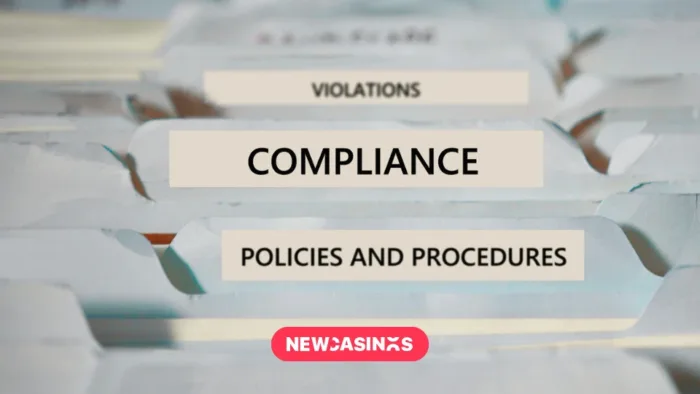The Environmental Impact of Gambling
With any growing industry in the modern era, there are prevalent conversations to be had about how to move closer to sustainability and lower negative environmental impact. The gambling industry is no exception to this, with 50% of adults in the UK engaging in some form of gambling in 2025 and the global number is predicted to surpass 290 million players by the end of the decade. So, what is the environmental impact that the gambling industry is causing?
Casinos operate in two areas: both online and in traditional, land-based casinos, with both creating their own unique environmental issues. Despite land-based casinos experiencing a decline in demand, they continue to attract millions of players each year, particularly in large venues like The Hippodrome Casino in London.
When you picture a casino, you’ll think of the bright lights that shine through to the sunrise. This requires a significant amount of energy, making this one of the primary aspects of environmental damage as casinos often operate 24/7 and consume energy for lighting, heating and air conditioning to name just three. To reduce the industry’s carbon footprint, land-based casinos can switch to renewable energy sources, allowing the bright lights to continue shining throughout the night.
Online casinos face having a significant environmental footprint because of their contribution to energy consumption, carbon emissions and electronic waste. Online casinos are powered by data centers and servers that require large amounts of electricity, resulting in high carbon emissions and energy consumption. As the industry grows, there has been an increasing emphasis on adopting sustainable solutions, with a particular focus on renewable energy sources.
Pioneers of Green Gambling
We are a long way from seeing the gambling industry reach the goal of being sustainable, but there are some pioneers in the industry carrying the torch towards a greener future.
MGM’s Initiatives for Sustainability
MGM Resorts is one of the biggest names in the industry, with a global reach for best-in-class hotels and casinos. They own 14 casinos on the Las Vegas strip alone and have not ignored their responsibility to work towards sustainability.
MGM Resorts set out two main goals:
- Reduce greenhouse gas emissions by 50% by 2030
- Source 100% renewable energy in the US and 80% globally by 2030
There has already been significant progress made towards this goal as they launched a 100MW Solar Array back in the summer of 2021, which delivers up to 90% of daytime power to 13 of its resorts in Las Vegas. The reach of this solar power will cover 65 million square feet of buildings across the 13 resorts and more than 36,000 rooms.
The Solar Array is located in the desert just north of Las Vegas and features 323,000 panels across 640 acres. The renewable energy that it produces is equivalent to the amount of power used by 27,000 homes in the US each year.
This marked a significant leap towards their 2030 goals, having already achieved 43.8% reduction in carbon emissions between 2007 and 2021. Bill Hornbuckle, president of MGM Resorts, said: “With MGM Resorts’ significant scale and resources, we’re positioned to make a meaningful difference in the fight against climate change, and we recognize our responsibility to build a more environmentally sustainable future.”
With MGM Resorts being one of the largest casino operators in the world, they have proven that the industry can make moves towards a sustainable future. However, there are still large operators such as Vici Properties and Gaming and Leisure Properties (GLP), which collectively own the real estate for 119 casinos but have yet to make significant changes to address the climate crisis. There is no easy fix, but with the collective contributions of the industry, the future can look greener.
Caesars Entertainment’s Sustainability Programs
There is no disguising how big a task combating climate change is, but it is programs like that run by Caesars Entertainment that make the process so much easier. Caesars Entertainment is a hotel and casino organisation that operates more than 50 properties. In 2008, they introduced their Go Green plan, which has since been rebranded as Code Green – an organisation-wide strategy to “identify, monitor, measure, assess, manage and reduce our material impacts on the environment” in a multi-year plan.
In 2013, a survey was carried out at one of the Caesar Entertainment hotels in New Orleans that demonstrated just how vital the company’s plans towards sustainability really are. The survey revealed that if guests had information about what action was being taken by the company to reduce energy consumption, recycle waste and rebuild the local community, the more likely guests were to revisit. This proves that companies operating within the gambling industry have a monetary incentive to increase sustainability because guests are more likely to visit and return.
Caesar Entertainment has been aiming for a greener future for over two decades, but this survey data only pushed them to do more. Caesar Entertainment has invested nearly $70 million in energy conservation projects over the past nine years and has undertaken more than 162 major retrofits.
A few examples include installing energy-efficient indoor and outdoor lighting, reducing lighting usage, improving the efficiency of air-handling systems and replacing technological controls with advanced energy saving sensors. By making these changes, Caesar Entertainment managed to avert 289 million pounds of carbon dioxide emissions annually and 208 million kilowatt-hours of energy are saved each year.
European Operators Leading in Green Practices
The move to go green isn’t just a focus for the US gambling market, but is a vital aspect for Europe as well.
Flutter Entertainment is a major European operator that owns big names like Betfair, Paddy Power and PokerStars. The 2024 Flutter Entertainment sustainability report, titled the Positive Impact Plan, detailed the successes in their journey towards sustainability.
A few of their significant achievements outline that the company achieved 100% renewable energy coverage for all offices and a 5% reduction in total GHG (Greenhouse Gas) emissions. This is just a small step in the right direction for Flutter, as they plan to have all its energy tariffs to be renewable energy by 2030.
Sisal Italy is the leading gaming operator in Italy, founded back in 1946. The company was acquired by Flutter in 2022, meaning they have collaborated on their journey to sustainability. Sisal’s achievements were a 14% reduction in electricity consumption compared to 2022, due to comprehensive action to improve energy efficiency and reduce GHG emissions. When companies collaborate, it is impressive to see what work can be done to ensure a greener future.
The European Gaming and Betting Association (EGBA) acts as the collective voice for Europe’s online gambling sector, with members like Bet365, Betsson Group, Entain and Flutter. The EGBA released its 2025 sustainability report which outlined the improvements made to the economic and social value through sustainable gambling, while also projecting a plan for the future. The members involved have collectively contributed €3.8 billion in taxes to European economies which directly improves the adverse social effects of gambling.
Online platforms investing in renewable energy for data centres
Data centres are IT infrastructures that companies rely on to process, store and distribute large amounts of data, but this comes with a catch. They require massive amounts of electricity, generating greenhouse gas emissions and air pollution. The Flutter Entertainment 2024 Sustainability Report revealed that they have been approved for their net zero target by Science Based Target initiative.
This means they are working directly with data centre suppliers, such as Amazon Web Services (AWS), to transition to direct reporting of operational emissions from cloud providers. By doing this, Flutter will be able to curate more accurate measurements of the environmental impact of its digital infrastructure.
The Business Case for Sustainable Casinos
All of this information raises the question: what can businesses get out of moving towards a sustainable future? While on the surface, it can look like a hassle with minuscule payoff, this isn’t the case at all.
The Caesar Entertainment survey data provided insight into how customers react positively to a company overtly considering sustainable approaches. They are more likely to have a positive experience and would consider returning to the establishment. With this in mind, this presents a significant marketing advantage for growing your customer base by advocating for and implementing an effective sustainability plan.
Making these changes will give companies strong green credentials that will make them stand out. Companies that prioritise ESG (Environmental, Social, and Governance) in their principles will likely see an improvement in their reputation, creating stronger investor relationships.
The initial shift towards implementing energy-saving technology can be expensive, with large businesses paying upwards of £60,000 in the UK for around 100kW output. However, the payback period will make this upfront cost worth it after you save money in the long run. Operationally, it is more efficient and it reduces the cost of energy bills in the long run.
By adopting a proactive approach to sustainability as part of a company ethos early on, it improved adaptability to regulatory changes. For example, the Environmental Act 2021 saw the introduction of targets to improve air and water quality, restore biodiversity and reduce waste. If gambling companies in the UK were already taking the necessary steps towards sustainability, this would be a natural progression to meet the new legal requirements.
How Green Practices Are Changing the Player Experience
The journey towards sustainability has inevitably impacted the player experience, but mainly in a positive way. Players are rewarded for helping with the sustainability movement by integrating rewards and challenges that encourage sustainable habits. This could mean players get 10 free spins for opting for paperless communication, for example.
Users can also choose to play games like GAMOMAT’S Lava Lion which donates part of its revenue to the African Wildlife Foundation, contributing to a greener world. Casinos have started to promote more sustainable payment options, too, such as PayPal, which features a carbon footprint tracker. Some casinos have also been found to discourage the use of unsustainable payment methods, like some crypto options, because they require significant energy consumption and produce electronic waste due to how blockchain servers operate.
The main changes to the industry are happening behind the scenes and will likely go unnoticed by the majority of customers. Any changes users do notice will be positive, like the introduction of bioluminescence to reduce energy use and eye strain or rewards for completing subconscious sustainable tasks.
Challenges and Future Outlook
The path to a sustainable future is never straightforward, but that doesn’t mean it’s impossible. As outlined above, the cost of just the solar panels alone makes for a costly transition that will take years to yield a financial payoff. However, this decision to venture towards a greener future will align with the increasingly stringent regulatory framework for sustainable gambling. Whether this be economic or social, each country’s regulatory body is clamping down on casinos to work towards the goal of sustainable and responsible resources.
As outlined, each operator is on their own mission to achieve their goals. For example, Caesar Entertainment wants to source 100% renewable energy in the US and Flutter has focused on its net zero target by the end of 2035. Both goals are different, but heading towards the same end goal.
Discover the Latest Casino News






